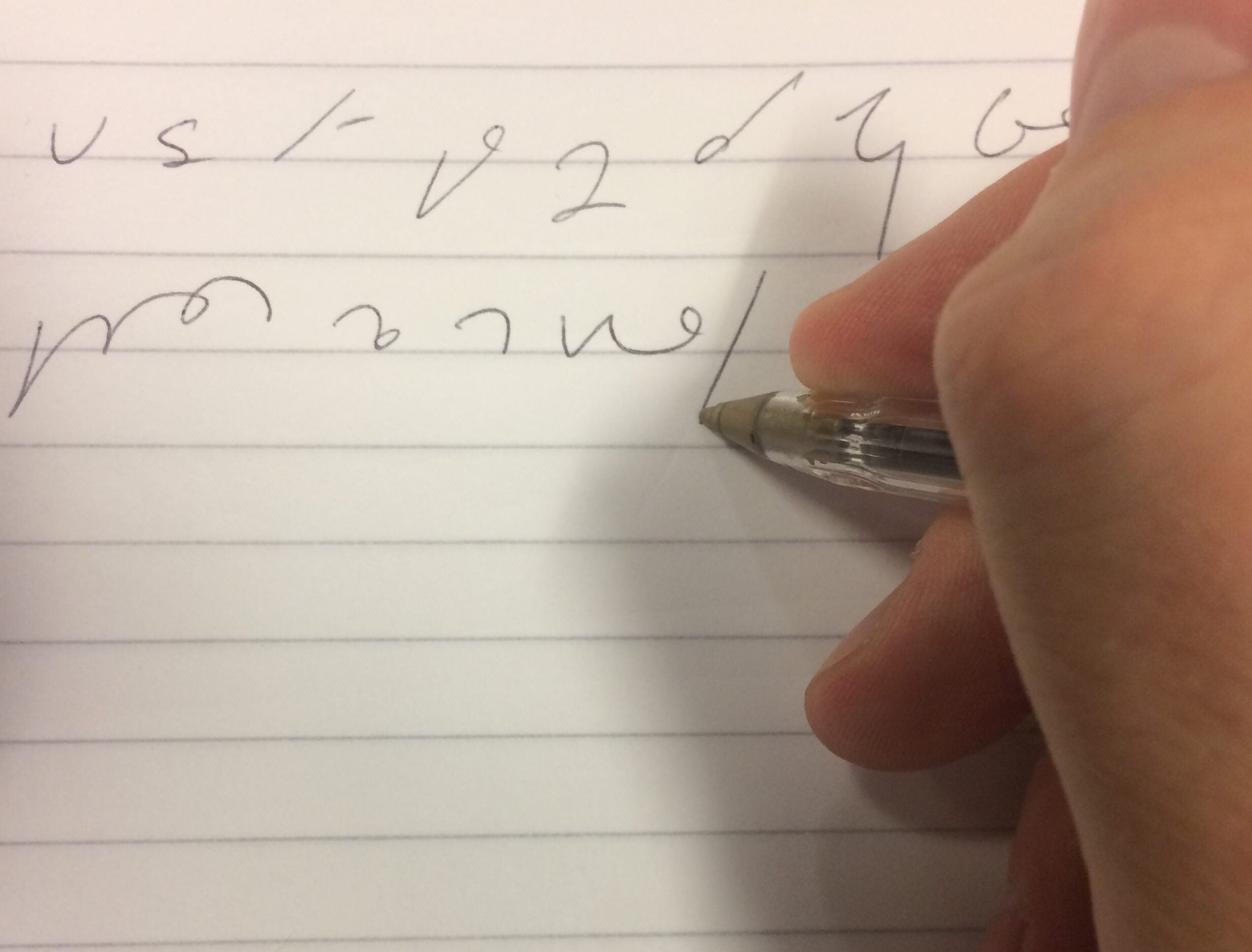
Piers Morgan is among journalists paying tribute to Teeline shorthand as the skill, which is still vital in reporting from UK courts, this year marks 50 years since its invention.
Morgan, who scored the first international TV interview with US President Donald Trump on ITV last night, said he still used shorthand in his day job as a presenter on Good Morning Britain.
Morgan, who completed his NCTJ training at Harlow College, said he urged “every journalist” to learn shorthand.
“Tape recorders are great until they don’t work, as I once discovered when I interviewed Rod Stewart for an hour and later could only hear my voice,” he said.
“Having an ability to take fast contemporaneous handwritten notes as a backup to technology is invaluable.
“I still use Teeline on Good Morning Britain during a big breaking news story live on air when I want to make a note of a powerful quote, and repeat it very soon afterwards.
“I’m not 100 words per minute as I was when I left Harlow, but I can still do OK. I’d urge every journalist to learn shorthand.”
Sky News presenter Sophy Ridge added: “I loved learning shorthand, despite the challenges of getting to the required words per minute. It’s undoubtedly one of the most useful skills I was taught at journalism college and I still use it every day at work.”
The National Council for the Training of Journalists is celebrating Teeline’s 50th anniversary with a number of activities throughout the year, including a “Tee Party” celebration at the NCTJ’s annual shorthand seminar in June.
The body is also calling on journalists, students and tutors to join the #showusyourteeline social media campaign by sharing photos of themselves using, learning and teaching Teeline shorthand.
All shorthand certificates issued in 2018 will also feature the anniversary logo.
Teeline was developed by James Hill, who was born near Bradford in 1908 and qualified as a teacher of Pitman shorthand – which was previously taught to journalists – by the age of 21.
Determined to create a quicker and more straightforward method of teaching shorthand, Hill began experimenting as early as 1939, and he saw positive results when he began to teach unofficial, experimental classes to day-release journalism trainees at Clarendon College, Nottingham, in 1966.
In 1968 the system was recommended to the National Council for the Training of Journalists.
Two years later, in November 1968, NCTJ shorthand consultant Harry Butler wrote: “We have on our hands a shorthand breakthrough which should solve longstanding shorthand problems. I have never known a shorthand system that can produce such good results in so short a time.”
Sky Sports News executive editor Andy Cairns said shorthand was still an important skill for Sky Sports News journalists.
He said: “As the pace of news gets faster, so too does the need for good, fast, accurate shorthand. Turning those quotes around quickly is vital and gives any journalist the edge over those without shorthand.
“Some of our presenters do short, sharp telephone interviews during three-minute ad breaks on Sky Sports News. They take down the answers in shorthand and then go live reading from their shorthand notes when we’re back on air. They couldn’t do that with longhand.”
Kim Fletcher, NCTJ chairman and former editorial director of Telegraph Group, added: “Call me a saddo, but for 40 years I’ve written, doodled and dreamt in Teeline. It’s got me through court and council, kept me awake in conferences, moved things along in interviews. 120 wpm, since you ask.
“Sure you can use digital recorders these days, but a two-hour session means two hours of playback to find the right bit. You can thumb through a notebook in seconds.
“If you take the trouble to learn shorthand, maybe you are really serious about journalism. Employers take that view. So go on, you know it makes sense.”
Email pged@pressgazette.co.uk to point out mistakes, provide story tips or send in a letter for publication on our "Letters Page" blog
